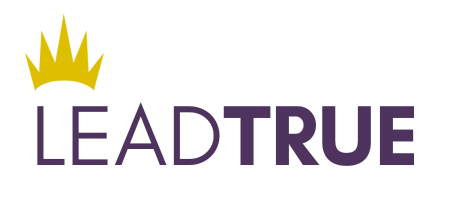3 Questions to Ask Yourself When You Are Looking for a Professional Learning Community
If you are currently looking for a professional learning community, you are not the only one. Many people feel on their own in the workplace and in their leadership roles for a variety of reasons. You might be working remotely and have less unstructured time with people to connect. Or you might feel like it is irresponsible to share your struggles and concerns because of the visibility and influence you have on your team or in your company. For people in underrepresented groups in leadership roles, this feeling of being alone is amplified because of the lack of stories, role models, and mentors that feel safe and relatable.
No matter the reason, feeling left on your own can affect your brain's functioning, productivity, and happiness. For these reasons, it's imperative to surround yourself with peers who can relate to your challenges, share experiences in a confidential way, and exchange advice.
Joining a professional community can be one way to give yourself the support you are looking for. In our experience, one of the most valued reasons for being part of a professional learning community is that it enables you to benefit from peer-assisted learning. Next to that, it creates a rest stop on your leadership development path where you can refuel and rejuvenate with a like-spirited group of fellow travelers.
There are various ways to find a professional learning community. You can create one yourself or join an existing membership that helps you connect and grow together.
How do you know what is the best form for you?
1) What Level Of Support Am I Craving?
Some may want a passive level of support where information is available when they need it, typically online. Others want a moderately active level of support where they engage with others, but in a flexible way. Some of us may want a more structured way of connecting, where we are motivated to set goals, share, try new things, and actively support each other along the way. What sounds best to you?
2) What Do I See Possible For Myself As An Outcome?
As we mention in the next bullet, being part of a professional learning community will take time and attention - and we know you are busy! It’s important to know what you want to get out of the community. This should be stated up front and shared so that it keeps you engaged and inspired to continue to show up and contribute, even when life attempts to get in the way.
3) What Resources (Time And Membership Fees) Do I Have To Invest In The Community?
It’s important to be intentional that the level of investment in the community you’re willing to commit to matches what you want the return to be. There are professional learning communities that are more passive of nature. These communities often require lower investments on your part in terms of participation, time, and fees. However, If you’re looking to become part of a community where you are actively supported and supporting others, this also requires more active participation on your part as well as higher membership fees.
Make sure that you know what level of investment feels good for you and what kind of investments you are willing to make to support your goals.
At Lead True, learning together has always been part of our leadership development model and in our services, we incorporated this element with our own professional leadership community: The Lead True Community Circle. You can join the community and engage at a level that aligns with your specific learning and support needs. Take a look at this page to learn more or reach out to schedule a conversation to learn more about the Lead True Community Circle.
About the Author
Dr. Alison Miller creates collaborative coaching relationships with her clients and helps them identify important life goals. She promotes the personal growth of all her clients by helping them change beliefs and attitudes, take action, engage in new behaviors and live their lives according to their own values.







Learn more about the Peace & Power 4-Legged platform in this blog article.